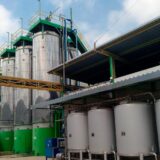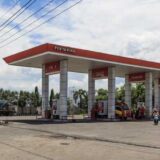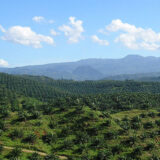Indonesia’s Bioethanol Blending Program to Commence in 2018
The Indonesian government has announced it expects to begin its bioethanol blending program in East Java in 2018. The East Java location was chosen because the logistics of blending and distribution are achievable. A large number of producers are making bioethanol there, and there is an abundant supply of sugar molasses, says Energy and Mineral Resources Ministry’s bioenergy director Andriah Feby Misna. “At the same time, we will also see the readiness of other regions to implement a similar program,” she says.
Chemical distributor PT AKR and state-owned energy company Pertamina have been assigned to deliver the fuel which will be distributed under a public service obligation (PSO) program, similar to the current biodiesel blending scheme. Pertamina is experienced in E2 fuel distribution having already sold E2 gasoline from 2008-2011 under the BioPremium brand and is currently responsible for over 90 percent of fuel sales in the country.
The announcement provides a much-needed kickstart to the region’s biofuels program which has been faced with ongoing delays. Initial plans were to implement the E2 bioethanol program in the transportation sector in 2016, alongside an E5 program in the industry, commercial, and non-PSO transportation sectors. Currently, no fuel-grade ethanol has been produced in Indonesia since 2010, owing to price volatility and weak demand.
Despite the government’s announcement, Pertamina spokesperson Adiatma Sardjito says the company would have to undertake a feasibility study first before implementing the bioethanol blending program. According to National Energy Board (DEN) member Syamsir Abduh, Pertamina could mix bioethanol with gasoline products with a research octane number (RON) of at least 92, enabling the sale of the blended fuel throughout Pertamina’s nationwide network.
Pricing remains a key consideration in the success of the bioethanol scheme. A variance between the bioethanol index price and Pertamax – Pertamina’s RON-92 gasoline – could deliver a financial burden on the company. “We should manage the pricing policy carefully, because if the price of the blended fuel is far above that of regular fuels, customers will not be attracted, and this program will be useless,” says Syamsir.
Energy and Mineral Resources Minister Ignasius Jonan has signaled that he plans to mandate the installation of at least one bioethanol nozzle at each of the country’s gas stations, following the completion of discussions with relevant stakeholders on bioethanol distribution. This follows a similar move last April where the ministry issued Decree No. 25/2017 requiring a minimum one compressed natural gas (CNG) dispenser to encourage the usage of gas-fuelled vehicles.











